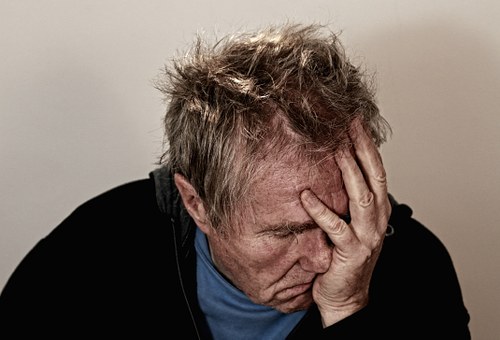Chronic pain is never easy to live with. It may be the result of post surgical issues, post-trauma issues, or diseases such as cancer, multiple sclerosis, stomach ulcers, AIDS, or even gallbladder disease. Regardless of the reason for it, chronic pain can restrict your life and make it difficult to perform daily chores or even go to work.
What is Chronic Pain?
Chronic pain is defined as pain that lasts for three to six months, or even longer. It affects your daily health, your ability to exercise, and can have an impact on your mental health, as well. Pain comes from messages your nervous system passes through your body. When you are injured, the pain sensors in that area of your body are switched on, and an electrical impulse is sent to your brain to let you know you are in pain. When your body heals, the messages usually stop, but with chronic pain they continue.
What Causes Chronic Pain?
The most common causes of chronic pain are injuries you got in the past, for instance in a skiing accident, a car accident, or an athletic injury. Past surgeries can also cause chronic pain in the body, triggering nerves that constantly fire in pain. Back problems, such as sciatica are also frequent causes of chronic pain, and migraines and chronic headaches are another source. The following four issues cause chronic pain in the body, too:
- Fibromyalgia
- Infections
- Nerve damage
- Arthritis
- Neuropathy
What Are the Symptoms of Chronic Pain?
Regardless of the reason for chronic pain, it is always painful and uncomfortable, and symptoms include:
- A dull ache
- Throbbing, burning, or shooting pain
- Squeezing, stinging, stiffness, or soreness
Other symptoms include feeling extremely tired or exhausted, little appetite, sleeping issues like insomnia, mood changes, a general lack of energy, and weakness. Chronic pain may also make you angry, depressed, frustrated, stressed, or anxious.
How is Chronic Pain Treated?
Chronic pain can feel like a vicious cycle, because sleeping, waking, or things you do in daily life may become difficult or impossible due to pain. Stress can increase the strength of chronic pain and make you feel like the pain is getting worse, or at the very least not getting better. Chronic pain is often difficult to diagnose, but doctors have come up with a variety of treatments, including:
- Medicine or painkillers
- Relaxation therapy
- Physical therapy
- Electrical stimulation
- Nerve blocks
- Surgery
- Massage therapy
- Acupuncture
- Behavior modification
- Sleeping more
Chronic pain can reduce flexibility and stamina, which may make exercising or working harder for many people. Since pain is a very personal and subjective experience, there is no test that can precisely measure and locate pain in the body, and doctors rely on patient descriptions of pain for treatment.
Can CBD Help with Chronic Pain?
Many doctors recommend a CAM or complementary or alternative medicine approach to chronic pain, and find that when you become involved and help self-manage your symptoms, your life becomes better. Enter CBD — or cannabiol, as it is known. Because inflammation causes so many chronic pain symptoms, CBD reduces that inflammation and chronic pain without causing you to feel high. There is so little THC in CBD oil that it doesn’t affect most people at all. Medical studies have found that cannabinoids like CBD can help with chronic pain from multiple sclerosis, cancer, and neuropathy. CBD and CBD topicals help with pain — if you suffer from chronic pain, CBD oil may help, as well. Pain relief is no laughing matter — CBD may give you hope for pain-free or reduced pain, and anything is worth a try.
[Image credit: Pixabay]








